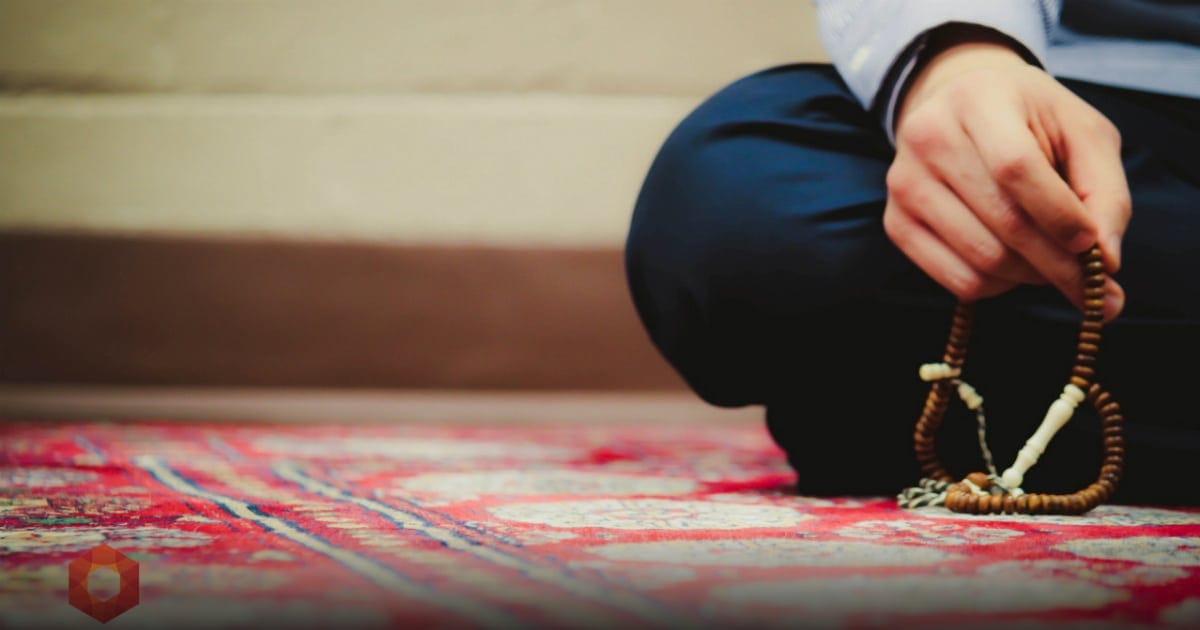Do I Need a Ghusl and Permission to Recite Dhikr Repeatedly?
Shafi'i Fiqh
Answered by Shaykh Irshaad Sedick
Question
1) I have read that you need permission to read certain dhikr; otherwise, there could be adverse effects. I constantly repeat la ilaha il Allah throughout the day as much as possible and sometimes recite Allahu Akbar. I have yet to consult on whether or not the amount I am doing is too much. I’m not sure how much I am doing; I know that I consistently do this dhikr, especially when walking outside and going to bed until I fall asleep. Is what I have described allowed and beneficial?
2) Can I repeat statements such as la ilaha il Allah and Allahu Akbar for dhikr while in a state requiring ghusl?
3) For a ghusl, would it be sufficient for me to ensure that the water from a shower touches my body?
Answer
In the Name of Allah, the Most Merciful and Compassionate.
May Allah alleviate our difficulties and guide us to what pleases Him. Amin.
Remembering Allah Frequently
You do not need special permission, in general, to make general forms of dhikr (like those described) from the Quran and Sunna. Allah and his Messenger have prescribed the permission and command for that (Allah bless him and give him peace).
Allah says: “O you who have believed, remember Allah with much remembrance. [Quran, 33:41]
Abu Hurayra (Allah be pleased with him) reports that the Prophet (Allah bless him and give him peace) said: “Recite ‘La ilaha illAllah’ abundantly before you are unable to recite it” (i.e., before you become ill/pass away) [Musnad Abu Ya‘la – with a sound chain; Targhib]
Unique Forms of Dhikr within Formal Spiritual Paths
Within the framework of a tariqa (formal spiritual path), there are usually certain unique litanies of dhikr that require the guidance or prescription of a teacher or shaykh to ensure that the seeker progresses on their path to Allah and does not become distracted or fall into the traps of shaytan, and Allah knows best.
Purificatory Requirements of Ghusl
Ghusl (ritualistic bath) and Wudu (ablution) are not requirements for general forms of dhikr, except for the recitation of the Quran and Prayer (Salat). They are recommended, and being in a pure state would be more beneficial to derive the most spiritual benefit from dhikr, and Allah knows best. [Nawawi, Minhaj]
Ghusl has two requirements. The two requirements of a Ghusl are: 1) having the intention for Ghusl, and 2) allowing the water to reach every surface area of the body. [Ibid.]
Please view this related answer.
I pray this is of benefit and that Allah guides us all.
[Shaykh] Irshaad Sedick
Checked and Approved by Shaykh Faraz Rabbani
Shaykh Irshaad Sedick was raised in South Africa in a traditional Muslim family. He graduated from Dar al-Ulum al-Arabiyyah al-Islamiyyah in Strand, Western Cape, under the guidance of the late world-renowned scholar Shaykh Taha Karaan.
Shaykh Irshaad received Ijaza from many luminaries of the Islamic world, including Shaykh Taha Karaan, Mawlana Yusuf Karaan, and Mawlana Abdul Hafeez Makki, among others.
He is the author of the text “The Musnad of Ahmad ibn Hanbal: A Hujjah or not?” He has served as the Director of the Discover Islam Centre and Al Jeem Foundation. For the last five years till present, he has served as the Khatib of Masjid Ar-Rashideen, Mowbray, Cape Town.
Shaykh Irshaad has thirteen years of teaching experience at some of the leading Islamic institutes in Cape Town). He is currently building an Islamic online learning and media platform called ‘Isnad Academy’ and has completed his Master’s degree in the study of Islam at the University of Johannesburg. He has a keen interest in healthy living and fitness.
